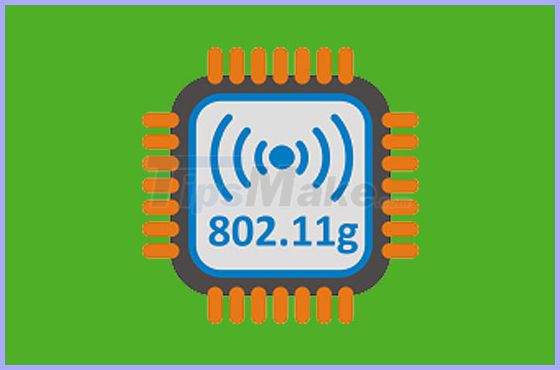Are 802.11b and 802.11g compatible?
Released in September 1999, it is likely that your first home router is 802.11b, operating at 2.4GHz and providing data rates up to 11Mbps. Interestingly, 802.11a products debuted before 802.11a, approved at the same time but launched later.
Approved in June 2003, 802.11g is the successor of 802.11b, able to reach speeds of up to 54Mbps in the 2.4GHz band, consistent with 802.11a speeds but in the lower frequency range.
Are 802.11b and 802.11g compatible?
WiFi network standards 802.11b and 802.11g are usually compatible. An 802.11b router / access point will work with 802.11g network adapters and vice versa.
However, some technical limitations affect networks combining 802.11b and 802.11g.
 An 802.11b router / access point will work with 802.11g network adapters and vice versa
An 802.11b router / access point will work with 802.11g network adapters and vice versa Technical limitations
- An 802.11b client will not have better network performance connected to an 802.11g router (access point) than when connecting to an 802.11b router. Such a connection is limited by the speed of the 802.11b router.
- When connected to an 802.11b router, the 802.11g client will experience slower network performance than the 802.11g router. Such a connection is limited by the speed of the 802.11b router.
 When connected to an 802.11b router, the 802.11g client will experience slower network performance than the 802.11g router
When connected to an 802.11b router, the 802.11g client will experience slower network performance than the 802.11g router - When both 802.11b and 802.11g clients are connected to the 802.11g router, the performance of the 802.11g client may be affected. In the worst case, all 802.11g clients will slow down to get the same network speed as the 802.11b clients. More often, 802.11g clients experience some performance degradation, but they still perform significantly faster than 802.11b 'partners'.
- The same encryption must be used for all devices on the WiFi network. 802.11g devices often support more advanced encryption options than older 802.11b devices. For example, some 802.11g routers and network adapters support WPA, but many 802.11g products only support weaker WEP. Stronger encryption options cannot be used on 802.11g devices, if the 802.11b device does not support them.
In short, 802.11b and 802.11g devices can share WiFi LAN networks. If properly set up, the network will operate correctly and operate at a reasonable speed. Combining 802.11b and 802.11g devices can save money on equipment upgrades in a short time. An 802.11g-only network provides the best wireless performance and is a long-term goal that is worth considering for homeowners.